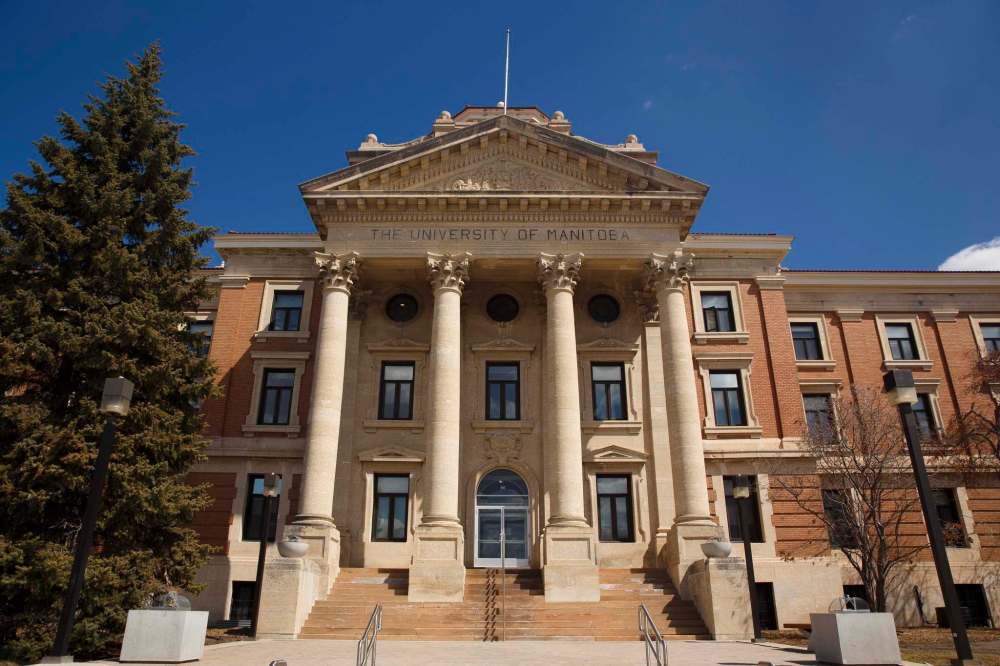U of M department head details underfunding ‘crisis’ for faculty, students as strike vote looms
Advertisement
Read this article for free:
or
Already have an account? Log in here »
To continue reading, please subscribe:
Monthly Digital Subscription
$19 $0 for the first 4 weeks*
- Enjoy unlimited reading on winnipegfreepress.com
- Read the E-Edition, our digital replica newspaper
- Access News Break, our award-winning app
- Play interactive puzzles
*No charge for four weeks then billed as $19 plus GST every four weeks. Offer only available to new and qualified returning subscribers. Cancel any time.
Read unlimited articles for free today:
or
Already have an account? Log in here »
Hey there, time traveller!
This article was published 12/10/2021 (1170 days ago), so information in it may no longer be current.
The University of Manitoba’s current head of computer science is sounding an alarm about the “ongoing crisis” in his department that has led to unsustainable staff workloads and hundreds of students unable to get into classes.
Against a backdrop of contentious bargaining talks, James Young wrote to his union president to outline his concerns, including an explosion in enrolment, faculty exodus and hiring issues — as both a professor and acting head of computer science.
“The department of computer science is facing a crisis, and both our faculty and our (more than) 1,000 undergraduate students are suffering. We are no longer able to even come close to meeting local industry demands,” he wrote in a recent letter to Orvie Dingwall, president of the faculty association.

Ballooning workloads and low wages, which are not competitive with market rates or other comprehensive universities, are causing problems that have only escalated during the last decade, according to the letter obtained by the Free Press.
Young referred a request for comment to his employer’s public affairs department.
In his letter, Young indicated there are currently 28.5 faculty members in his department, which translates into a students-to-faculty ratio of approximately 37 — a figure that is more than double the second-highest ratio of 13 in biological sciences.
Given required course wait lists are often larger than class sizes, he said hundreds of students cannot progress in their degree programs. He noted three colleagues have left the department this year to work at other institutions that offer better pay and smaller workloads.
“We continue to lose more people than we are able to hire,” wrote Young, adding there have been six failed searches since 2012 and three currently underway have yielded few applications.
He has made an appeal to the union to both advocate for better baseline pay across the board and market supplements — an additional sum paid to instructors that acknowledges they could be making more money if they worked in their field outside a university — to address staffing problems in computer science.
There has been no shortage of tension surrounding bargaining priorities inside the union this year. Ultimately, the union has come to the table with a $10-million pitch that includes increasing all salaries, boosting starter wages and making a baseline increase to address wage freezes in recent years.
Dingwall said Wednesday that bargaining is at an impasse since administration continues to cite the fact it cannot budge from its $1-million offer because of a mandate. A strike vote is scheduled for this weekend.
The union president, who was flanked by union colleagues and representatives from both the provincial NDP and Manitoba Liberals, hosted a press conference to criticize the province for interfering with the process. While the province claims a mandate is not unusual, owing to its role as a steward of public funds, Dingwall said strict government mandates prescribed since 2016 have hindered recruitment and retention.
She said every faculty is struggling with staffing, and the recruitment of Indigenous scholars continues to be a challenge because wages are the lowest of all comparable English-speaking post-secondary schools in Canada.
“When we don’t properly fund our universities, students go elsewhere — so does research and innovation,” she said.
In a statement, Myrrhanda Novak, U of M’s executive director of public affairs, said the university is committed to addressing faculty recruitment and retention. Novak said the school has made a proposal to continue market supplements and adjust salary scales to bring them in line with other institutions.
maggie.macintosh@freepress.mb.ca
Twitter: @macintoshmaggie

Maggie Macintosh
Reporter
Maggie Macintosh reports on education for the Winnipeg Free Press. Funding for the Free Press education reporter comes from the Government of Canada through the Local Journalism Initiative.
Our newsroom depends on a growing audience of readers to power our journalism. If you are not a paid reader, please consider becoming a subscriber.
Our newsroom depends on its audience of readers to power our journalism. Thank you for your support.


